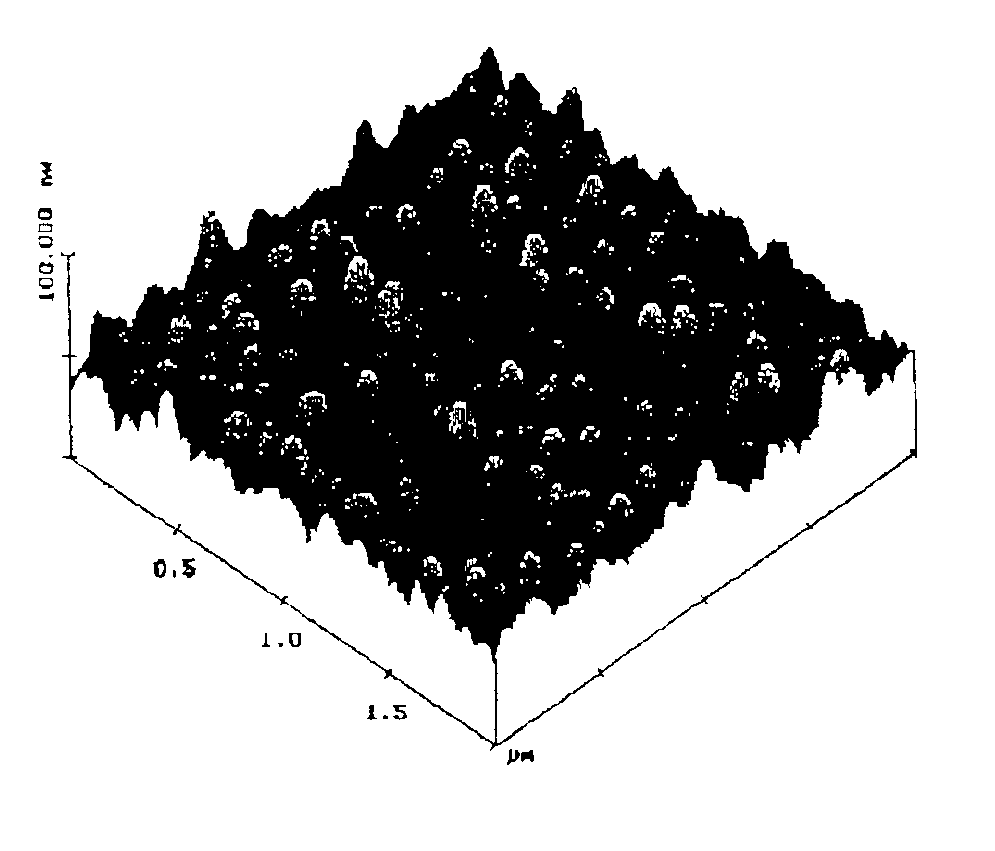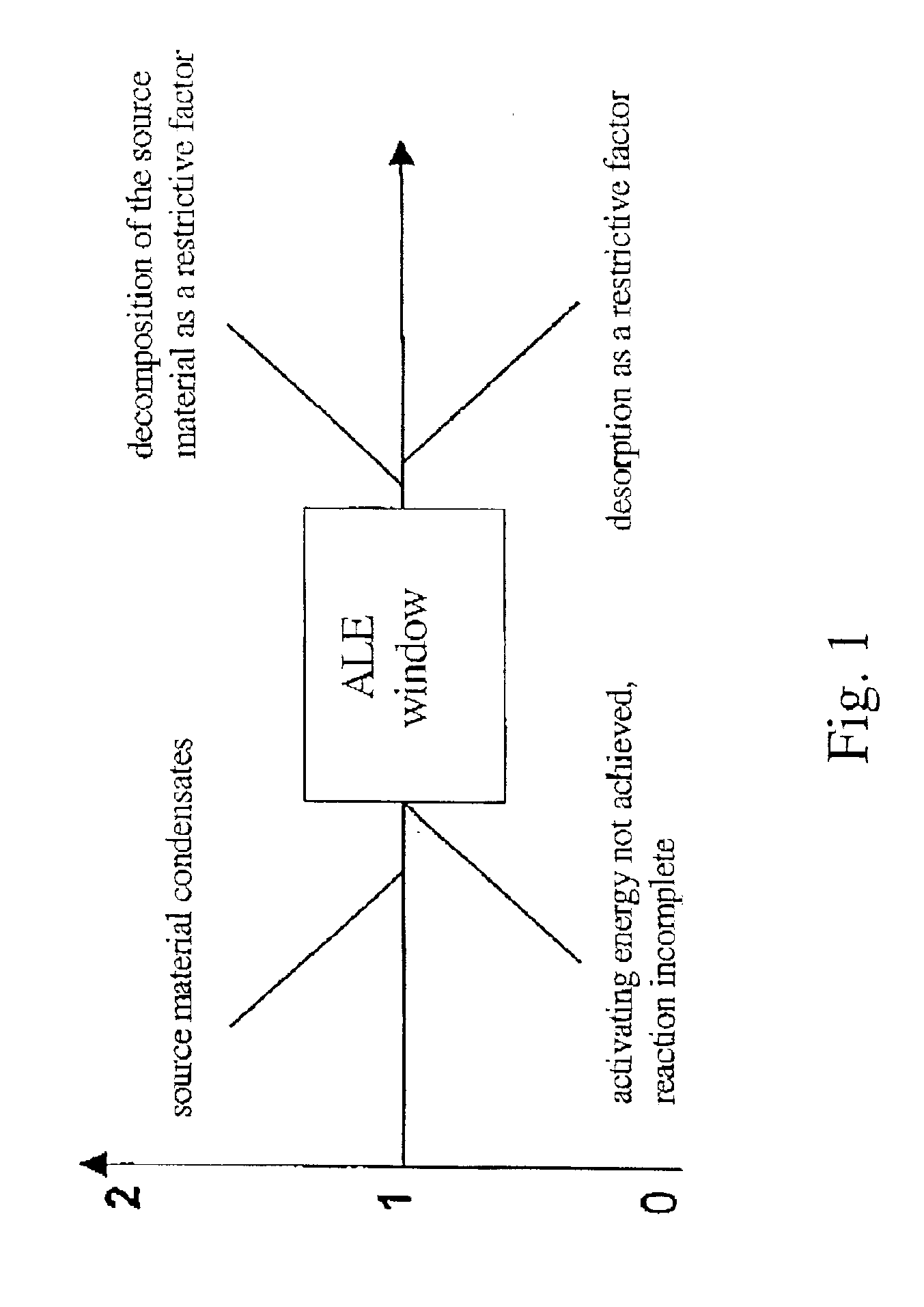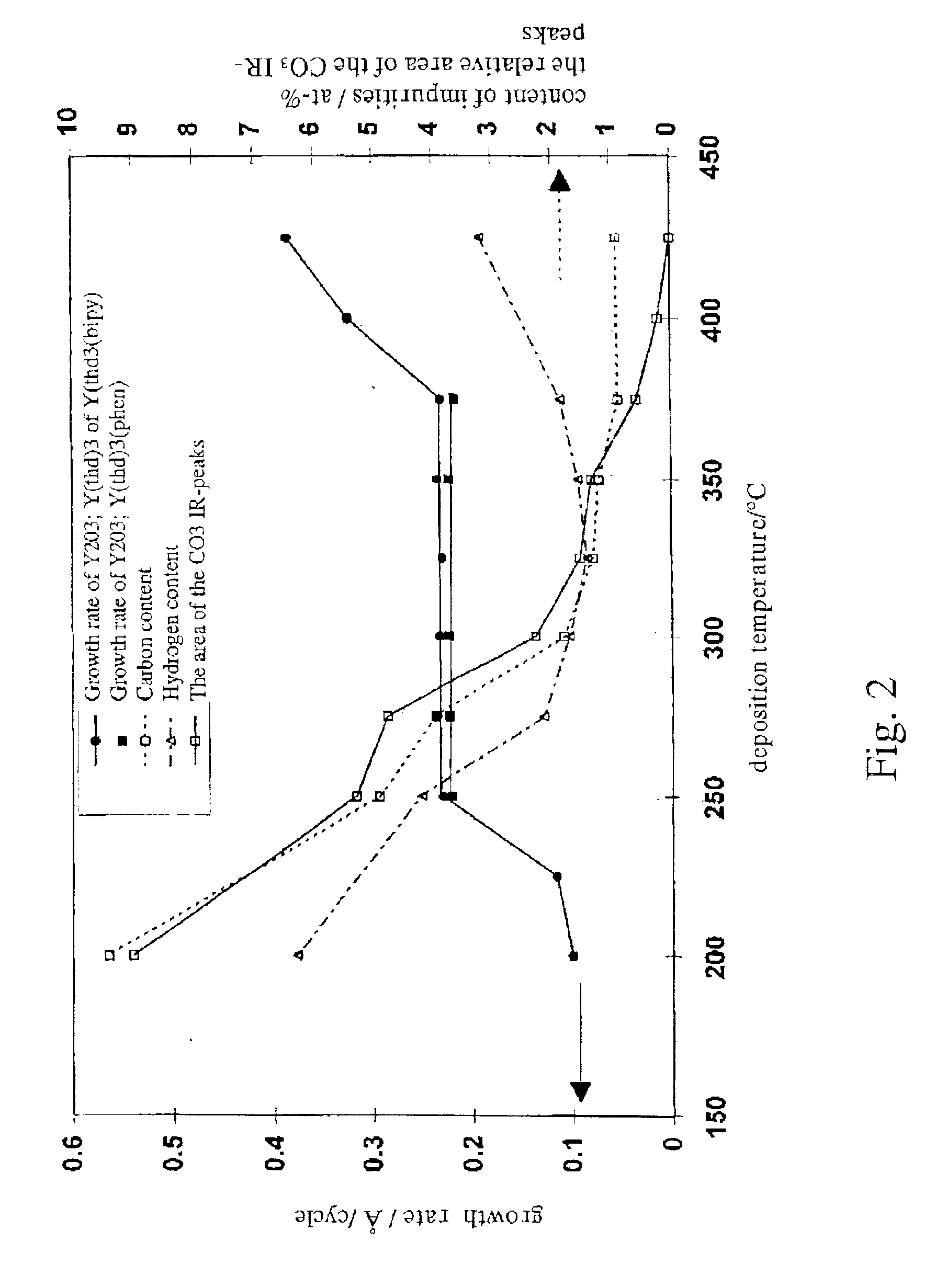Method of depositing rare earth oxide thin films
a rare earth oxide and thin film technology, applied in the field of rare earth oxide thin film depositing, can solve the problems of low space densities on semiconductor-insulator interfaces, continuous decrease of electronic components, and lack of passivating and dielectric native oxide, and achieve the growth rate, morphology and crystallinity of films deposited according to the present invention. good, the effect of high growth rate of rare earth oxide thin film
- Summary
- Abstract
- Description
- Claims
- Application Information
AI Technical Summary
Benefits of technology
Problems solved by technology
Method used
Image
Examples
example 1
Deposition of Y2O3 Thin Films From (CpMe)3Y and Water
Deposition of the Y2O3 thin films were performed in a flow-type F-120 reactor manufactured by ASM Microchemistry Ltd. The schematic diagram of the reactor used is shown in FIG. 6. Reactor is provided with eight separate heating blocks. The source material was vaporized at the evaporation temperature in the first block and conveyed with the aid of pulsed carrier gas (N2) into the substrate space. Because of the increasing temperature gradient from the source to the substrate space the source material vapor did not condense on the conduit walls. The source material pulses were separated from each other by inert purging pulses (N2). Nitrogen gas was generated by a nitrogen gas generator (Nitrox UHPN 3000-1). Claimed purity of nitrogen was >99.999%. Deposition pressure was from 1 to 2 mbar. The deposition parameters, such as the number and length of pulses, and temperatures of the heating blocks, were controlled by a computer.
The (CpM...
example 2
Deposition of Y2O3 Thin Films From (CpMe)3Y and Ozone
Y2O3 films were grown according to examples 1, except that ozone and a mixture of ozone and water were used instead of plain water as an oxygen source material.
Fischer Model 502 ozone generator Fischer Labor-und Verfahrenstechnik GmbH, Meckenheim / Bonn, BRD) generated an ozone-oxygen mixture that had about 3.5% of ozone from pure oxygen (AGA, 99.999%).
Si(100) and soda glass were used as substrates. Native oxide layer was not removed from the surface of the Si(100) substrate. The soda glass substrates were on the opposite side with respect to the Si(100) substrates.
Changing the oxidant from water to a mixture of oxygen and ozone (pulsing time 2 s) caused no change on the growth rate. However, when using a mixture of water and ozone, it was observed that a growth rate increased to 1.65 Å / cycle. That is about 30% higher than the value obtained at the same deposition temperature (300° C.) with plain water as the oxidant. It has to be n...
example 3
Cp3Y as the Yttrium Source Material and Water as the Oxygen Source
The Cp3Y source material is sensitive to air like (CpMe)3Y. Thus, the handling of the source material, loading the source material boat, conveying to the reactor and determining an appropriate evaporation temperature was performed in the same way as explained in experiment 1. Water was used as an oxidant for the deposition of the Y2O3 thin films.
In order to define an ALD window, depositions of the Y2O3 thin film were performed at temperature range from 200 to 400° C. In order to evaluate the linearity of the growth rate the number of the deposition cycles was varied from 300 to 4000 at a deposition temperature of 300° C. The effect of the length of the source material pulses was studied in the deposition temperature range from 200 to 300° C.
Cp3Y was evaporated at 150-155° C. The length of the pulses of Cp3Y and water was 0.7 s and the purging pulses between the source material pulses were 1.0 and 1.2 s, respectively. ...
PUM
| Property | Measurement | Unit |
|---|---|---|
| pressure | aaaaa | aaaaa |
| pressure | aaaaa | aaaaa |
| temperature | aaaaa | aaaaa |
Abstract
Description
Claims
Application Information
 Login to View More
Login to View More - R&D
- Intellectual Property
- Life Sciences
- Materials
- Tech Scout
- Unparalleled Data Quality
- Higher Quality Content
- 60% Fewer Hallucinations
Browse by: Latest US Patents, China's latest patents, Technical Efficacy Thesaurus, Application Domain, Technology Topic, Popular Technical Reports.
© 2025 PatSnap. All rights reserved.Legal|Privacy policy|Modern Slavery Act Transparency Statement|Sitemap|About US| Contact US: help@patsnap.com



